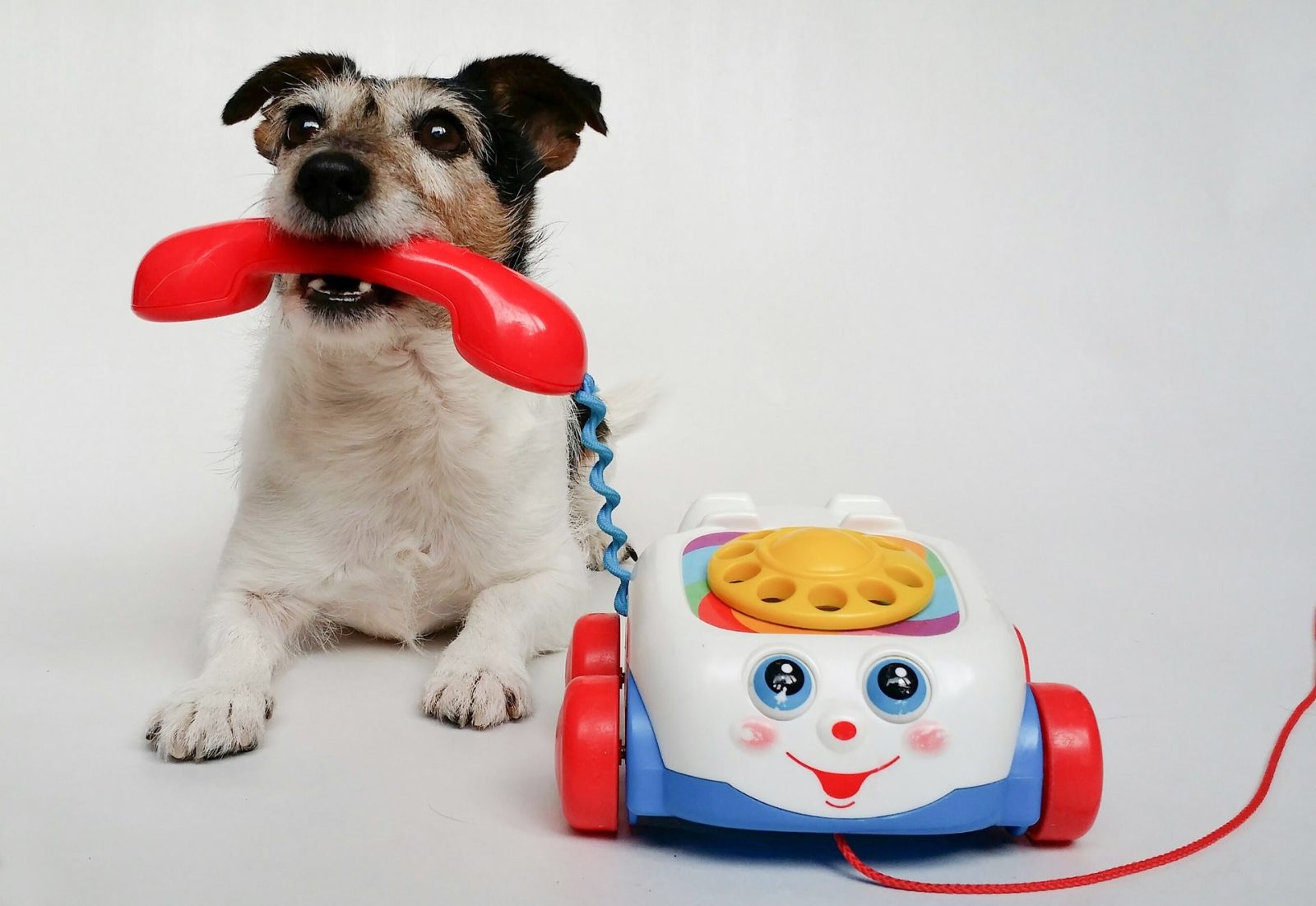
Contents
Do Dogs Need A Toy – Introduction

Some people worry that their dog doesn’t need toys. I’m here to tell you that they do: they need the right kind of toy.
As a dog owner, you probably know that dogs are often considered part of the family. They are loyal and protective and can be a good source of comfort to their owners.
In addition to keeping your pet occupied with toys, you should also consider investing in some playpen or enclosure if you have more than one dog in the house that needs its own space while they play together as a pack (which is normal).
If you want to know whether dogs need toys, you should ask yourself what your dog would want if they could talk or choose. Dogs are pack animals, meaning they strongly desire to socialize with other dogs. They also need mental stimulation, physical exercise, and the feeling that their home is safe and secure.
These things are all possible through playtime with your pet—and with some simple steps, you can quickly fill their days with fun!
How to Pick the Right Toys for Your Pet: https://www.youtube.com/watch?v=8kJVPHs-4Wk
Dogs love being around people and will do anything to please their owners.
Dogs love being around people and will do anything to please their owners. They are social animals, meaning they like the company of other dogs, people, and animals. A dog is part of a family unit and needs to be part of at least one other family unit for it to feel complete as an individual.
When you’re training your new dog or puppy, you must make sure she knows how much fun it can be when she does something good – like coming when called or sitting down politely on command! If your pup doesn’t know what this means, try having her sit at her food bowl while calling her name until she does so willingly; then, reward her with some treats! This way, she’ll associate those things with getting rewarded (good behavior) instead of just eating without fussing around first thing every morning after taking care of her all day.
Many toys are designed specifically for dogs, and they’re meant to provide entertainment and exercise opportunities.
Toys are an excellent way for dogs to keep active and interact with their environment. Many toys are designed specifically for dogs, and they’re meant to provide entertainment and exercise opportunities. Toys can help train dogs or even teach them how to interact with other pets in your home.
If a dog is bored, it’s likely because they don’t have enough stimulation or exercise, like getting out for walks, hikes, etc., and their environment isn’t safe enough (if you’re worried about them destroying things).
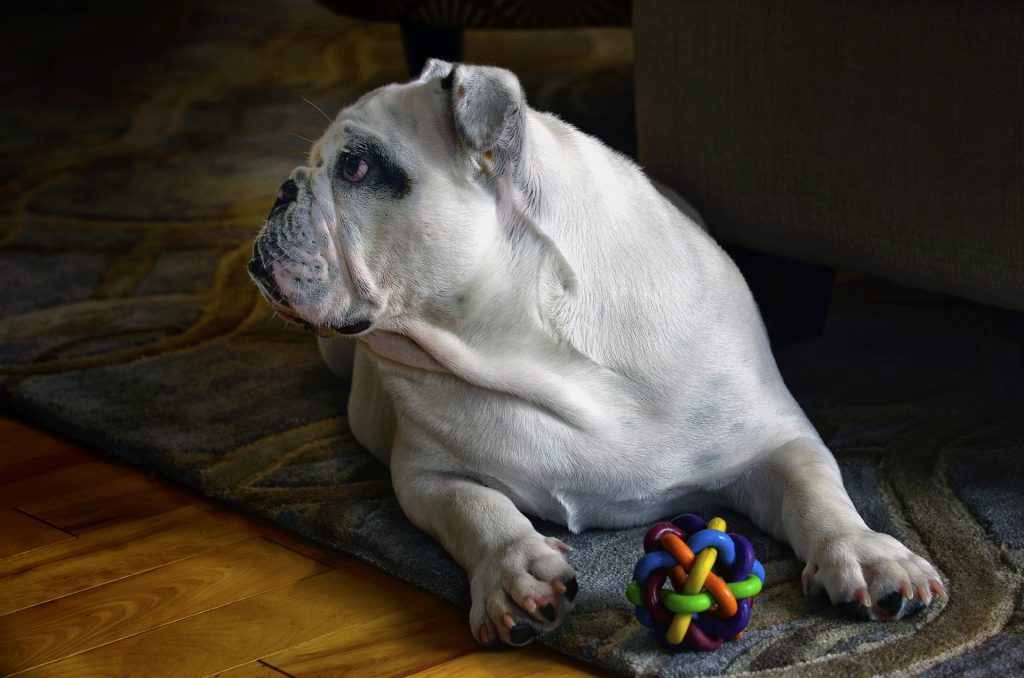
If your dog does not get enough exercise and stimulation, it can lead to behavioral problems such as hyperactivity or aggression. Dogs who aren’t given adequate mental stimulation may become destructive or aggressive because they feel bored and stressed out by the lack of mental stimulation; this can also cause problems with their socialization skills if they don’t learn how to communicate with people properly.
Mental stimulation – toys can help you bond with your dog. They’ll also keep them occupied while you’re busy or away, making it easier for you to focus on other things when needed.
Control over behavior – Using a toy can help control aggressive behavior by distracting your pet from something happening around him (such as another animal approaching). This can be especially useful if he tends to have separation anxiety or bark at strangers walking past his yard!
Teaching tricks – Using different toys as props to teach commands like sit/stay/rollover is tremendous fun for humans and canines alike!
Some dogs like to play with toys and people (and vice versa!), but no matter your pup’s preference, you should give them something fun to spend their time with.
Dogs don’t need toys as much as they do attention from their owners. And if he’s been around other people who have given him attention in the past, then you can probably expect that he’ll be happy just hanging out with you while playing fetch or tug-of-war games over the backyard fence!
There are many different types of toys you can buy for your dog. Some dogs like to chew on plush toys, while others prefer chew sticks.
Plush toys are soft and cuddly, while chew sticks are more rigid and durable. Some dogs like both! Some dogs prefer one or the other; some might like either toy but not both at once (and vice versa).
Choosing the correct type of toy for your pet is essential based on their preferences and personality, age, size, and health condition.
Some dogs love to chase their tails and jump up on things, while others prefer playing fetch with their owners—in that case, try throwing a ball or other toy into the air for them to catch. This is great because it’s safer for you if you’re outside together!
If your dog doesn’t seem interested in toys, don’t worry; there are plenty of other ways to keep them entertained beyond just tossing around stuffed animals or squeaky toys (like those little balls that make noise when they roll). For example:
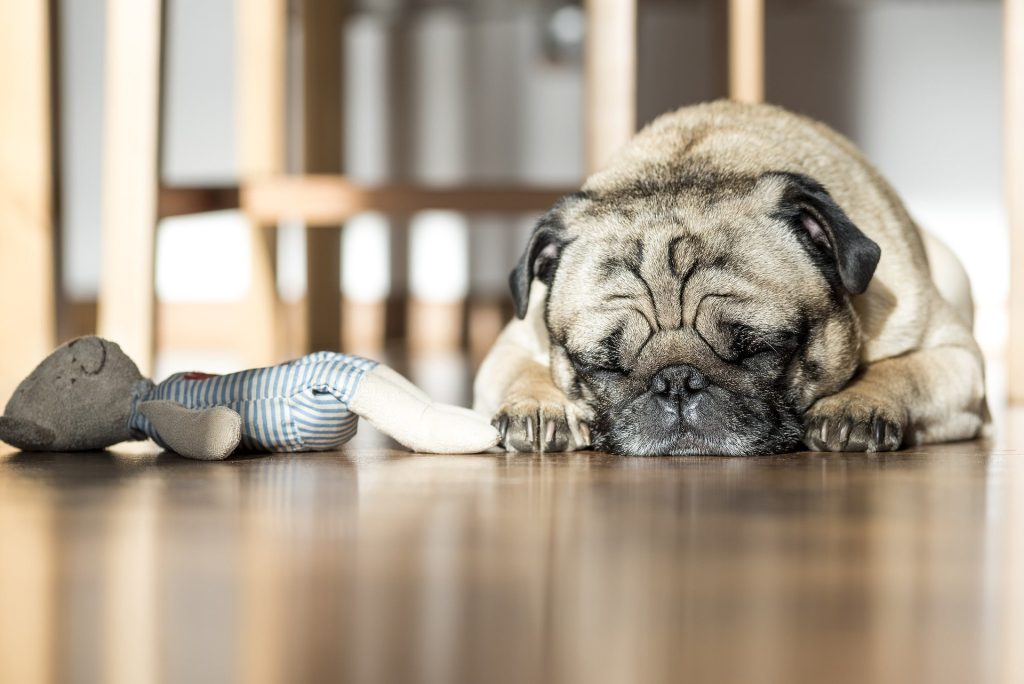
Some dogs may need a lot of exercise; some may not.
It’s important to note that a dog’s personality will determine how much exercise they need. Dogs who are more active or laid back tend to do better with more physical activity, whereas less active dogs may not need as much extra stimulation.
Some dogs may benefit from toys and other fun things for their minds and bodies; others don’t care about anything but food and water (which is perfectly fine).
If you have a pet parent like me, you know that every person has a unique play style—just like kids do: some people like sports games, while others prefer board games!
Some dogs are rambunctious and energetic, while others prefer to lounge around and watch tv. This is a typical trait in all dogs, but it’s essential to remember that some toys can be too large or heavy for your pet.
If you have a small dog with a tiny mouth who likes playing with balls but doesn’t want anything too big or heavy (like Kongs), consider purchasing smaller plastic ones instead of rubber ones like those sold at PetSmart or Walmart. They’ll still get the job done but won’t take up as much space on their floor!
Some dogs like chasing sticks, while others chase balls; both kinds of toys serve their purpose well by giving kibble-chomping playmates something interesting to do when left alone for too long during the day (which seems like every day). But if you’re looking for something unique to keep your pup entertained for several days together indoors? Try filling up an old sock with treats inside so that when its owner returns home later tonight after dinner out…
Dogs also have different personalities depending on their breed.
The type of dog you get, and its breed, also play a role in your dog’s personality.
Dogs are generally more active than people—they need exercise and stimulation to keep them happy. But suppose your pet doesn’t have enough mental stimulation at home or can’t get enough physical activity outside (a common problem for dogs living in apartments).
In that case, you must make sure they’re getting enough mental stimulation by giving them toys and games and regular walks with their owner/family members who are willing to participate in these activities with them regularly (if not every day).
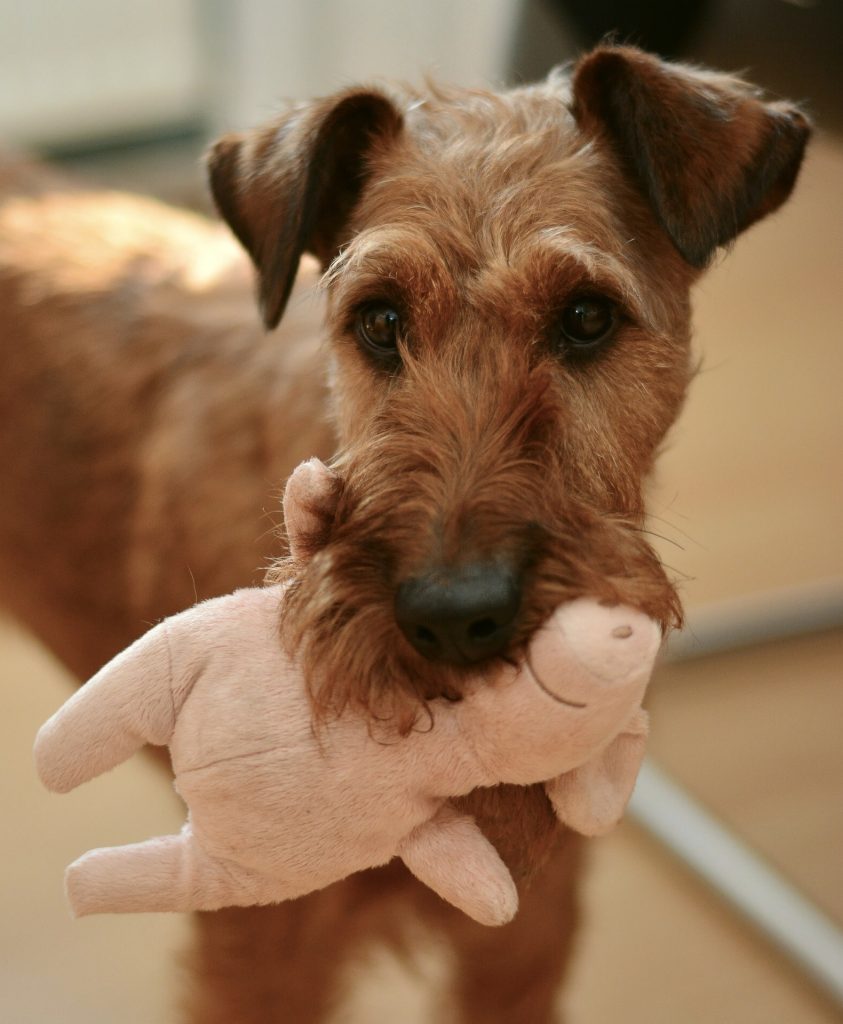
Smaller breeds tend to be more playful than larger ones.
Small dogs are generally more energetic, which means they need more exercise. They can also be destructive when given too much free rein in their environment. Bigger dogs, on the other hand, are usually more laid-back and don’t require as much exercise or stimulation from their owner as small breeds do.
Rottweilers, German Shepherds, and other giant athletic breeds can be playful, but they usually need more exercise than smaller dogs.
Smaller dogs may not need as much exercise because they’re generally less active. However, if your dog needs a lot of exercises to stay healthy and happy, it’s best to consult your vet before making any decisions about toys or playtime.
If you have a big athletic dog that loves to run and play fetch, it is best to get only a few toys because the dog will likely tire quickly and be bored with them after a while. If your dog tends to destroy things (like mine), it is better to get a more durable toy.
Every dog is different, so get one that fits your lifestyle!
The first step in choosing the best toy for your dog is determining what toy you want. There are several different toys, so you must know what your dog likes before deciding which type will work best for them! Here are some things to consider when picking out a new toy:
Size – Some dogs like small squeaky toys, while others prefer huge plush ones. Make sure to get one that fits their size and age group; if they’re too big or too small, it will be difficult for them to enjoy playing with it over time.
Material – Some materials are more durable than others (elements like rubber). It would help if you also looked into whether or not experts have tested certain types at getting destroyed quickly, which means they will only last for a short time as those made from other materials such as plastic or cardboard.
Conclusion
So, do dogs need toys? It depends on the individual dog. Some dogs love to play with toys, and others prefer to lie around and do nothing. If you want your pet to enjoy the time spent with you, give them some activity that keeps them going for hours at a time!
The best advice I can give you regarding dog toys is that they should be interactive and exciting. If your dog gets bored with the same old ball or stick, try getting them a toy that challenges them in some way, like puzzle pieces or rawhide bones. You can also mix up their routine by getting them new playthings regularly — like squeaky rubber toys every couple of weeks — so they stay away from old ones for too long.
Fluff and Tuff Ball – Amazing Plush Toy for Your Dog in 2022: https://adoptanim.com/fluff-and-tuff-ball/


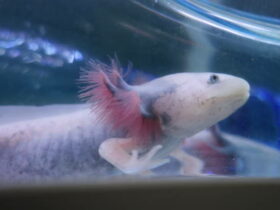



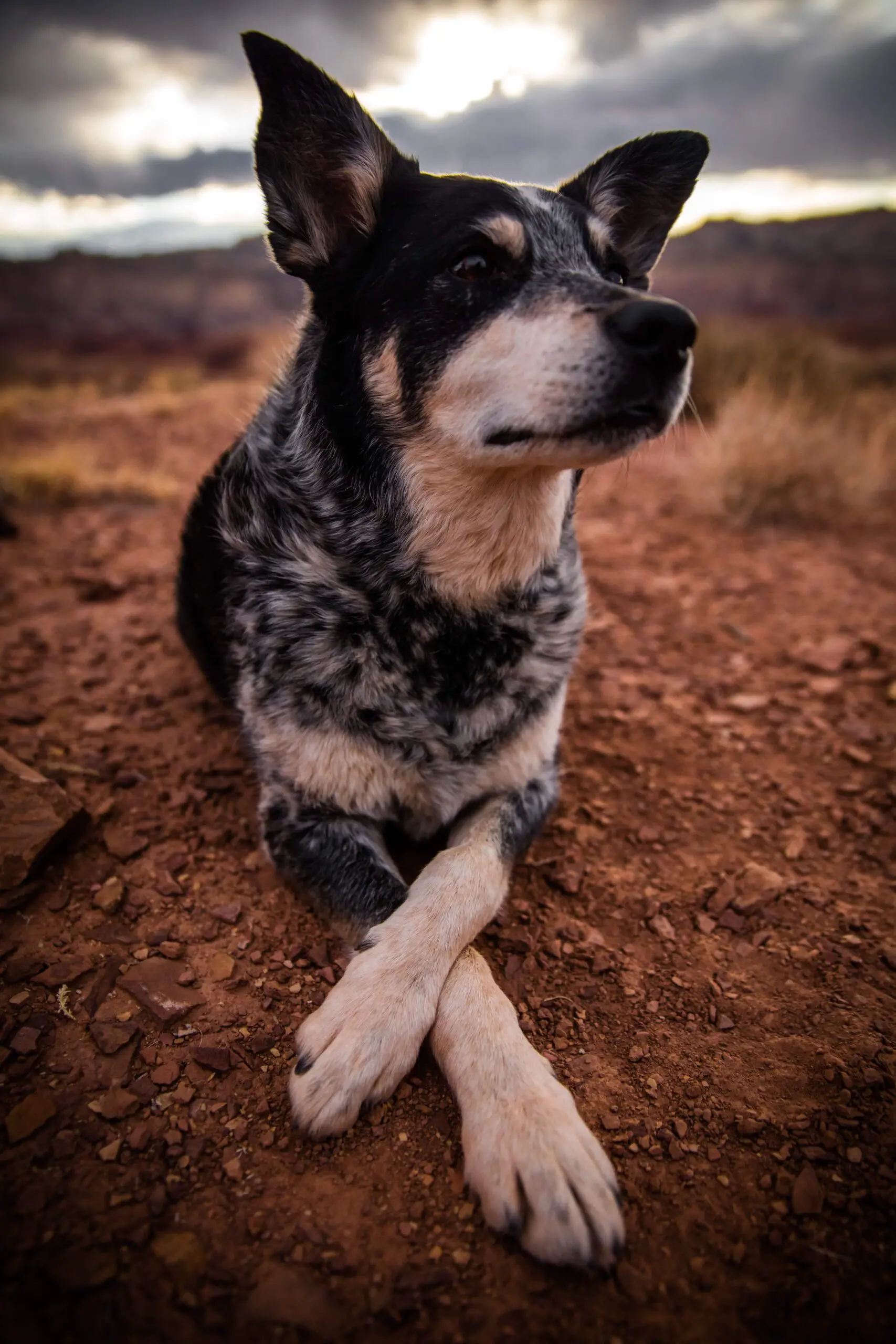

Leave a Reply